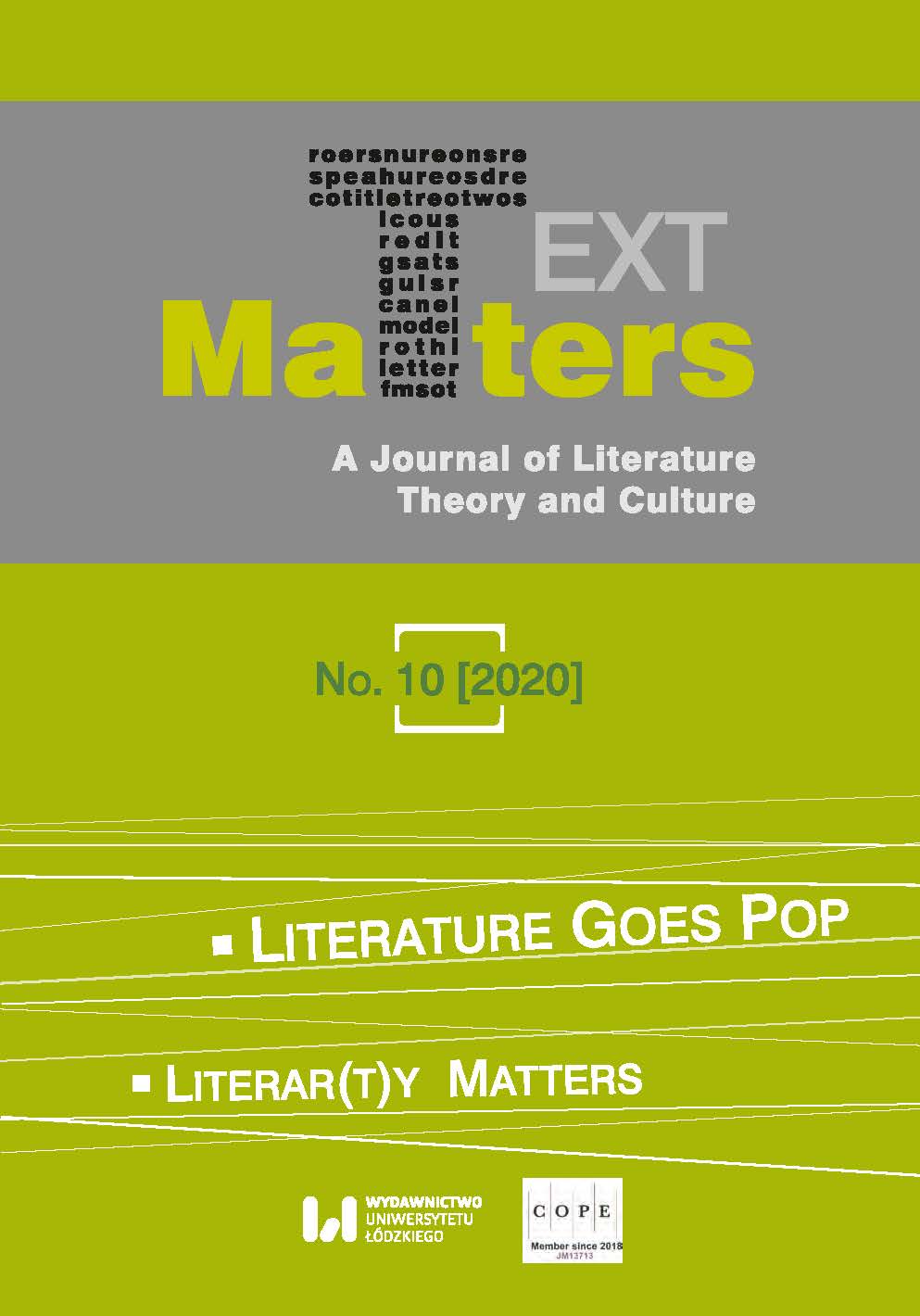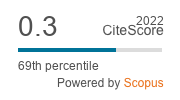Online Humour, Cartoons, Videos, Memes, Jokes and Laughter in the Epoch of the Coronavirus
DOI:
https://doi.org/10.18778/2083-2931.10.17Keywords:
viral humour, COVID-19 quarantine, online exemplars, analysis of specific works, validity of humorous discourse amidst a global pandemicAbstract
From the onset of the indefinite deferral of our previously taken-for-granted lives, an abundance of humorous online cartoons, jokes, memes, videos and other satirical material relating to the COVID-19 outbreak—and its consequences—has emerged. Humorous responses to this dire global pandemic proliferate irrespective of location, nationality, ethnicity, age, gender and/or socio-political affiliations. Against a background of enforced lockdowns, quarantine, and sometimes gross political ineptitude, with a mounting daily global death toll, humour referencing this scourge continues to blossom. This may seem counterintuitive or inappropriate at a time of heightened anxiety and fear apropos of an invisible killer-virus, known only in diagrammatic—and, ironically, aesthetically pleasing—visual form. Online humour evoking the COVID-19 crisis is expressed recursively via intertextuality referencing literary, visual, written, oral or other “texts.” Interpictoriality is evident with memes that reconfigure renowned visual artworks. The internet enables copious discourse related to the COVID-19 eruption/disruption.
Embedded in this article are examples to support the article’s theoretical basis, with intertextuality its major focus. Discussion follows, with speculation as to why humour, absurdity and wit are able to prosper in an environment of radical uncertainty and why joking about our parlous global predicament acts as a vital coping mechanism.
Downloads
References
Anderson, Benedict. Imagined Communities: Reflections on the Origin and Spread of Nationalism. London: Verso, 1983. Print.
Google Scholar
Bakhtin, Mikhail. Speech Genres and Other Late Essays. Trans. Vern W. McGee. Ed. Caryl Emerson and Michael Holquist. Austin: U of Texas P, 1986. Print.
Google Scholar
Beckett, Samuel. En attendant Godot. Paris: Minuit, 1952. Print.
Google Scholar
Betcher, R. William. “Intimate Play and Marital Adaptation.” Psychiatry 44 (1981): 13–33. Print. https://doi.org/10.1080/00332747.1981.11024088 ; PMid:27755884
Google Scholar
DOI: https://doi.org/10.1080/00332747.1981.11024088
Bienkov, Adam. “Scientists Fear the Hunt for a Coronavirus Vaccine Will Fail and We Will All Have to Live with the ‘Constant Threat’ of COVID-19.” Businessinsider.com.au. Business Insider Australia 25 Apr. 2020. Web. 25 Apr. 2020.
Google Scholar
Bjurwald, Lisa. “Social Distance, Swedish style.” Politico.eu. Politico 30 Mar. 2020. Web. 20 Apr. 2020.
Google Scholar
Blackmore, Susan. The Meme Machine. London: Oxford UP, 1999. Print.
Google Scholar
Boston, Richard. An Anatomy of Laughter. London: Collins, 1974. Print.
Google Scholar
Bremmer, Jan N., and Herman Roodenburg. A Cultural History of Humour: From Antiquity to the Present Day. Cambridge: Polity, 1997. Print.
Google Scholar
Camus, Albert. La peste. Paris: Gallimard, 1947. Print.
Google Scholar
Camus, Albert. Le mythe de Sisyphe. Paris: Gallimard, 1942. Print.
Google Scholar
Camus, Albert. The Myth of Sisyphus. Trans. Justin O’Brien. London: Penguin Classics. 1955. Print.
Google Scholar
Camus, Albert. The Plague. Trans. Stuart Gilbert. Harmondsworth: Penguin, 1960. Print.
Google Scholar
Coleridge, Samuel Taylor. Biographia Literaria. Gutenberg.org. Project Gutenberg Jul. 2004. Web. 3 Aug. 2020.
Google Scholar
“Coronavirus: Outcry after Trump Suggests Injecting Disinfectant as Treatment.” Bbc.com. BBC 24 Apr. 2020. Web. 25 Apr. 2020.
Google Scholar
Clark, Michael. “Humour and Incongruity.” Philosophy 45.171 (1970): 20–32. Print. https://doi.org/10.1017/S003181910000958X
Google Scholar
DOI: https://doi.org/10.1017/S003181910000958X
Davies, Christie. Jokes and Targets. Bloomington: Indiana UP, 2011. Print.
Google Scholar
Dawkins, Richard. The Selfish Gene. Oxford: Oxford UP, 1976. Print.
Google Scholar
Dayan, Daniel, and Elihu Katz. “Media Events: On the Experience of Not Being There.” Religion 15.3 (1985): 305–14. Print. https://doi.org/10.1016/0048-721X(85)90017-X
Google Scholar
DOI: https://doi.org/10.1016/0048-721X(85)90017-X
Dayan, Daniel. Media Events: The Live Broadcasting of History. Cambridge: Harvard UP, 1992. Print.
Google Scholar
DOI: https://doi.org/10.4159/9780674030305
Deutsch Presse-Agentur (DPA). “Americans Follow Trump ‘Advice’ by Gargling Bleach.” The Australian Newspaper 8 Jun. 2020: 8. Print.
Google Scholar
de Waal, Frans. Are We Smart Enough to Know How Smart Animals Are? UK: Granta, 2016. Print.
Google Scholar
Eagleton, Terry. Humour. US Office: Yale UP, 2019. Print. https://doi.org/10.2307/j.ctvfc528q
Google Scholar
DOI: https://doi.org/10.12987/9780300244786
“Family, Domestic and Sexual Violence in Australia.” Aihw.giv.au. Australian Institute of Health and Welfare 15 May 2019. Web. 19 Oct. 2019.
Google Scholar
Farmer, Blake. “At Least 9,000 U.S. Health Care Workers Sickened With COVID-19, CDC Data Shows.” Npr.org. Nashville Public Radio 15 Apr. 2020. Web. 20 May 2020.
Google Scholar
Francis, Adrian. Personal communication with the author. 17 Jun. 2020.
Google Scholar
Freud, Sigmund. Jokes and their Relation to the Unconscious. The Standard Edition of the Complete Psychological Works of Sigmund Freud. Volume VIII. London: Hogarth/The Institute of Psycho-Analysis, 1953/1974. Print.
Google Scholar
Fromkin, Victoria A. “Slips of the Tongue.” Scientific American 229 (Dec. 1973): 181–86. Print. https://doi.org/10.1038/scientificamerican1273-110 ; PMid:4756435
Google Scholar
DOI: https://doi.org/10.1038/scientificamerican1273-110
Georges, Robert A., and Alan Dundes. “Toward a Structural Definition of the Riddle.” The Journal of American Folklore 76.300 (1963): 111–18. Print. https://doi.org/10.2307/538610
Google Scholar
DOI: https://doi.org/10.2307/538610
Ginsburg, Kenneth R., the Committee on Communications, and the Committee on Psychosocial Aspects of Child and Family Health. “The Importance of Play in Promoting Healthy Child Development and Maintaining Strong Parent-Child Bonds.” Pediatrics 119.1 (Jan. 2007): 182–91. Web. 6 Aug. 2020. https://doi.org/10.1542/peds.2006-2697
Google Scholar
DOI: https://doi.org/10.1542/peds.2006-2697
Glendinning, Phil. “Asylum Seekers, Refugees and Human Dignity.” Social Alternatives 34.1 (2015): 27–33. Print.
Google Scholar
Glez, Damien. “[Chronique] Top 10 des bénéfices inattendus du coronavirus.” Jeuneafrique.com. Jeune Afrique 26 Mar. 2020. Web. 30 Mar. 2020.
Google Scholar
Groos, Karl. The Play of Man. Trans. Elizabeth L. Baldwin. New York: D. Appleton, 1912. Print.
Google Scholar
Groos, Karl. “The Psychology of Animal Play.” The Play of Animals. Trans. Elizabeth L. Baldwin. New York: D. Appleton, 1898. 287–328. Print.
Google Scholar
DOI: https://doi.org/10.1037/12894-005
Haastrup, Helle Kannik. “One Re-Enchanted Evening: The Academy Awards as a Mediated Ritual within Celebrity Culture.” Northern Lights: Film and Media Yearbook 6.1 (2008): 127–42. Print. https://doi.org/10.1386/nl.6.1.127_1
Google Scholar
DOI: https://doi.org/10.1386/nl.6.1.127_1
Halfpenny, Kate. “Winnie the Pooh Banned in China over Comparisons to President Xi.” Thenewdaily.com.au. New Daily 7 Aug. 2018. Web. 31 May 2020.
Google Scholar
Holland, Norman N. “The ‘Willing Suspension of Disbelief ’ Revisited.” The Centennial Review 11.1 (1967): 1–23. Print.
Google Scholar
Hunter, David J. Essentials of Discrete Mathematics. Burlington, MA: Jones and Bartlett, 2011. Print.
Google Scholar
Jackson, David. “Trump Says Schools Should Reopen Because Children Are ‘Virtually Immune.’” Usatoday.com. USA Today 5 Aug. 2020. Web. 7 Aug. 2020.
Google Scholar
Kessler, Glenn. “Trump’s Claim That 99% of Coronavirus Cases Are Totally Harmless.” Washingtonpost.com. The Washington Post 8 Jul. 2020. Web. 20 Jul. 2020.
Google Scholar
Knight, Charles A. The Literature of Satire. Cambridge: Cambridge UP, 2004. Print. https://doi.org/10.1017/CBO9780511485428
Google Scholar
DOI: https://doi.org/10.1017/CBO9780511485428
Kollwitz, Kath. Personal communication with the author. 3 Jun. 2020
Google Scholar
Kuipers, Giselinde. Good Humor, Bad Taste: A Sociology of the Joke. Berlin: Walter de Gruyter, 2015. Print. https://doi.org/10.1515/9781501510441
Google Scholar
DOI: https://doi.org/10.1515/9781501510441
Lintern, Shaun. “Coronavirus: Medics Shouldn’t Work without Safe PPE, Doctors Told as Fears Grow UK Pandemic Stockpile Is Almost Empty.” Independent.co.uk. Independent 20 Apr. 2020. Web. 20 Apr. 2020.
Google Scholar
Malley, Robert. “Continuing with the Status Quo Offers Only the Prospect of Endless War. 10 Conflicts to Watch in 2020.” Crisisgroup. org. International Crisis Group 27 Dec. 2019. Web. 3 Jul. 2020.
Google Scholar
McGrew, May. Rev. of The Meme Machine, by Susan Blackmore. PaleoAnthropology 1 (2003): 23–24. Print.
Google Scholar
Milner Davis, Jessica. “‘Aussie’ Humour and Laughter: Joking as an Acculturating Ritual.” Serious Frolic: Essays on Australian Humour. Ed. Frances De Groen and Peter Kirkpatrick. Queensland: U of Queensland P, 2009. 31–47. Print.
Google Scholar
Milner Davis. Personal communication with the author. 12 May 2020.
Google Scholar
Mrowa-Hopkins, Colette. Personal communication with the author. 3 Jul. 2020.
Google Scholar
Nash, Walter. The Language of Humour. London: Longman, 1985. Print.
Google Scholar
Nilsen, Don L. F. “The Importance of Tendency: An Extension of Freud’s Concept of Tendentious Humor.” Humor: International Journal of Humor Studies 1 (1988): 335–47. Print. https://doi.org/10.1515/humr.1988.1.4.335
Google Scholar
DOI: https://doi.org/10.1515/humr.1988.1.4.335
Norrick, Neal R. “Intertextuality in Humor.” Humor 2.2 (2009): 117–140. Web. 20 May 2020. https://doi.org/10.1515/humr.1989.2.2.117
Google Scholar
DOI: https://doi.org/10.5325/studamerhumor.20.2009.0117
Orthner, Dennis K. “Leisure Activity Patterns and Marital Satisfaction over the Marital Career.” Journal of Marriage and Family 37 (1975): 91–102. Print. https://doi.org/10.2307/351033
Google Scholar
DOI: https://doi.org/10.2307/351033
Orthner, Dennis K. “Patterns of Leisure and Marital Interaction.” Journal of Leisure Research 8 (1976): 98–111. Print. https://doi.org/10.1080/00222216.1976.11970261
Google Scholar
DOI: https://doi.org/10.1080/00222216.1976.11970261
Osaki, Tomohiro. “Abenomask? Prime Minister’s ‘Two Masks per Household’ Policy Spawns Memes on Social Media.” Japantimes.co.jp. Japan Times 2 Apr. 2020. Web. 16 Jun. 2020.
Google Scholar
Pansy the Dancing Horse. Amy Savarese. Online video clip. Vimeo.com. Vimeo 5 Dec. 2015. Web. 20 May 2020.
Google Scholar
Połońska-Kimunguyi, Eva, and Marie Gillespie. “Terrorism Discourse on French International Broadcasting: France 24 and the Case of Charlie Hebdo Attacks in Paris.” European Journal of Communication 31.5 (2016): 568–83. Print. https://doi.org/10.1177/0267323116669453
Google Scholar
DOI: https://doi.org/10.1177/0267323116669453
Provine, Robert. “Contagious Laughter: Laughter is a Sufficient Stimulus for Laughs and Smiles.” Bulletin of the Psychonomic Society 30.1 (1992): 1–4. Print. https://doi.org/10.3758/BF03330380
Google Scholar
DOI: https://doi.org/10.3758/BF03330380
Rabin, Roni Caryn, and Chris Cameron. “Trump Falsely Claims ‘99 Percent’ of Virus Cases Are ‘Totally Harmless.’” Nytimes.com. The New York Times 5 Jul. 2020. Web. 5 Jul. 2020.
Google Scholar
Rand, Ayn. Atlas Shrugged. New York: Random, 1957. Print.
Google Scholar
Rose, Jacqueline. “Pointing the Finger.” London Review of Books 42.9 (2020): n.p. Lrb.co.uk. Web. 2 Jun. 2020.
Google Scholar
DOI: https://doi.org/10.1515/9780822380092-002
Rose, Margaret A. Pictorial Irony, Parody, and Pastiche: Comic Interpictoriality in the Arts of the 19th and 20th Centuries. Bielefeld: Aisthesis Verlag, 2011. Print.
Google Scholar
Sandford, Alasdair, and Luke Hurst. “Boris Johnson Grilled on ‘Vague’ UK Coronavirus Lockdown Advice.” Euronews.com. Euronews 12 May 2020. Web. 15 May 2020.
Google Scholar
Shaftesbury (Earl of), Anthony Ashley Cooper. Sensus Communis: An Essay on the Freedom of Wit and Humour. In a Letter to a Friend. UK: Gale Ecco, 2018. Print.
Google Scholar
Sherzer, Joel. “Puns and Jokes.” Handbook of Discourse Analysis: Discourse and Dialogue. Ed. Teun A. Van Dijk. London: Academic, 1985. 213–21. Print.
Google Scholar
Shifman, Limor. “Memes in a Digital World: Reconciling with a Conceptual Troublemaker.” Journal of Computer-Mediated Communication 18.3 (2013): 362–77. Print. https://doi.org/10.1111/jcc4.12013
Google Scholar
DOI: https://doi.org/10.1111/jcc4.12013
Suls, Jerry M. “A Two Stage Model for Appreciation of Jokes and Cartoons: An Information-Processing Analysis.” The Psychology of Humor: Theoretical Perspectives and Empirical Issues. Ed. Jeffrey H. Goldstein and Paul E. McGhee. New York: Academic, 1972. 81–100. Print. https://doi.org/10.1016/B978-0-12-288950-9.50010-9
Google Scholar
DOI: https://doi.org/10.1016/B978-0-12-288950-9.50010-9
Timms, Peter. Silliness: A Serious History. South Australia: Wakefield, 2019. Print.
Google Scholar
Totilo, Stephen. “When a Gaming Fantasy Is Eerily Close to Reality.” Nytimes.com. The New York Times 8 Apr. 2020. Web. 11 Apr. 2020.
Google Scholar
Turak, Natasha. “Wearing a Mask Can Significantly Reduce Coronavirus Transmission, Study on Hamsters Claims.” Cnbc.com. CNBC (Consumer News and Business Channel) 19 May 2020. Web. 20 May 2020.
Google Scholar
Veale, Tony. “Strategies and Tactics for Ironic Subversion.” Developments in Linguistic Humour Theory. Topics in Humour Theory 1. Ed. Marta Dynel. Amsterdam: John Benjamins, 2013. 321–40. Print. https://doi.org/10.1075/thr.1.15vea
Google Scholar
DOI: https://doi.org/10.1075/thr.1.15vea
Weber, Caroline. “Fasion [sic].” Nytimes.com. The New York Times 3 Dec. 2006. Web. 20 May 2020.
Google Scholar
Zhao, Jinping, et al. “A Meta Analysis of Randomized Controlled Trials of Laughter and Humour Interventions on Depression, Anxiety and Sleep Quality in Adults.” Journal of Advanced Nursing 75 (2019): 2435–48. Print. https://doi.org/10.1111/jan.14000 ; PMid:30882915
Google Scholar
DOI: https://doi.org/10.1111/jan.14000
Downloads
Published
How to Cite
Issue
Section
License

This work is licensed under a Creative Commons Attribution-NonCommercial-NoDerivatives 4.0 International License.













